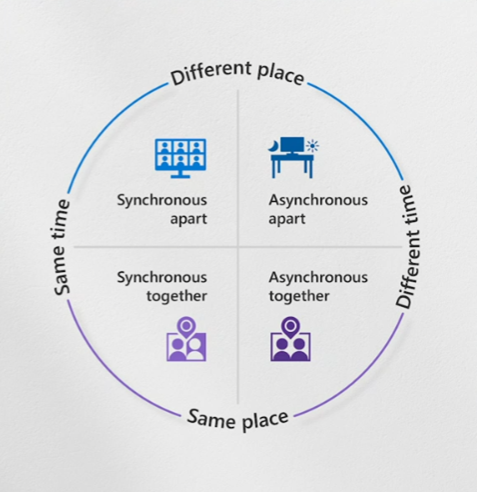11 ways Viva Topics and SharePoint Syntex will transform your organisation
Following the public launch of what Microsoft was calling ‘Project Cortex’ (now known as SharePoint Syntex and Viva Topics) at the recent Ignite global conference, Zoe Wilson, Head of Enterprise Collaboration and Productivity at Agilisys discusses 11 of the main ways the latest Microsoft products will transform organisations.
The way that we work is changing. In response to the COVID-19 crisis in particular, organisations have achieved more transformation – and at a vastly accelerated rate – than ever before. In addition to the pressures brought about by coronavirus and the requirement for global remote working, work is also becoming more complex – and that complexity is worsening.
It’s therefore imperative for organisations to be agile, to move fast and to innovate – both at pace and at scale. There are, however, several issues to be overcome if organisations are to enable and realise the full benefits of the latest wave of transformation.
The volume of data that exists is astronomical and growing exponentially. This makes it hard for people to find information that they need, the time required to make informed decisions is longer than it needs to be and organisations typically suffer from the loss of valuable data which is buried in legacy systems such as fileshares.
Additionally, there is a huge untapped pool of tacit knowledge which is typically locked inside the head of unidentified individuals and communities within the company.
Demonstrating compliance with regulations such as GDPR and the UK Data Protection Act can be difficult – if not impossible – when you’re dealing with such huge volumes of unstructured data.
The good news is that the first app to be launched, SharePoint Syntex and the Febrary 2021 addition, Viva Topics – deliver the potential to change all of this. Here’s how:
1. Recognise and Bring Together Knowledge and Content
Viva Topics and SharePoint Syntex apply AI to recognise topics across content and conversations, organise related information and generate topic pages that experts can curate, as well as analysing and understanding your content. Ultimately, this will help employees find the answers that they need much more quickly. For the public sector, this will save significant amounts of time by surfacing topics and information about content to people at the time they need them across the whole of Microsoft 365. This is a huge win, as studies indicate that office workers spend as much as 33% of their time searching for information.
2. Personalise Knowledge
Once content has been analysed and topics have been identified by the artificial intelligence (AI) engine, they can also be accessed through personalised knowledge portals, which will act as central repositories for knowledge built in SharePoint Online. This will allow your employees to deep dive into all related content for topics in a central place.
3. Identify Experts
Topic cards connect you with resources and expertise in the context of your work across Microsoft 365. The topic information will be presented to you in the flow of your work across Microsoft 365 or through knowledge centres, and in addition to providing all of the content, will also tell you who the experts are on that particular topic. Within public sector organisations, typically there are longstanding employees who may have historical knowledge which colleagues are unaware of – Viva Topics will allow you to identify who these people are and tap into the contextual knowledge that they can provide.
4. Improved Employee Onboarding
We all know how long it can take to get new starters up to speed, and often this can be challenging where processes need to be figured out and where information lives in lots of different places. This can be true of people who are new to a project as well as those who are new to your organisation – project onboarding can also impact delivery timelines and the cost of projects, so can have quite a big impact. Being able to surface knowledge more easily to people in the flow of work by bringing it to them in the form of topic cards, can improve the time taken to achieve full onboarding, and help your new employees become more effective more quickly.
5. Automatic Classification
SharePoint Syntex uses advanced AI to capture and tag structured, semi-structured and, in some cases, unstructured content. A typical local authority in the UK produces circa 2 million new files every year. Manually tagging all this content is virtually impossible, would be very expensive and is likely to be inaccurate as well, as it is unlikely that all people will tag documents consistently across the board. Automatic classification delivers several benefits in addition to saving huge amounts of time, which are outlined in our next few examples!
6. Content / Metadata Extraction
When content is scanned and analysed as part of the automatic classification process, the AI engine of SharePoint Syntex is also capable of identifying key fields within documents and pulling them out into metadata columns. This could be contract start and end date, value of the contract, the name of the person who signed it and so on. This will be incredibly powerful, as it can enhance understanding of content, improve search and provide richer triggers for retention policies and advanced automation.
7. Speed to Full Compliance
The content understanding capabilities within SharePoint Syntex will not only analyse and identify content, but once trained effectively, will be able to apply advanced automatic classifications and protection to content, including retention and sensitivity labels. The time taken to do this manually is astronomical, and likely never achieved fully due to either non-compliance across the organisation, or due to inconsistent labelling of content. This is the fastest and most effective way to achieve full information governance compliance across all content within SharePoint Online and Microsoft Teams.
8. More Effective Search
Once content has been analysed by SharePoint Syntex and metadata extracted, this will supercharge the search experience across an organisation. Essentially what happens under the hood is that Microsoft Search is now able to index all of the new information that it has about your content, which should drive better search results and make it easier for people to find the information they are looking for and enable more focused searching using search refiners. When you think that various studies indicate that office workers spend between 20-33% of their time searching for information, this will have a significant positive impact on productivity.
9. Unlock Hidden Value
Organisations produce content at a huge rate, which is increasing year–on–year. As mentioned above, based on our research across local authorities within the UK, we typically see an annual growth rate of more than 2 million files a year. When combined with the inability to search effectively for this content, what happens over time is that lots of valuable information can be hidden in content, where organisations are unable to tap into it. By using Project Cortex, organisations can start to tap into the hidden value found within their dark data.
10. Drive Automated Processes
Following analysis of the content and metadata extraction by Syntex, additional capability is unlocked. This metadata information can be used by the Power Platform to drive advanced automation of your business processes. If we think of a practical way to explain this, imagine a world where invoices are scanned automatically by the content understanding process, and key values – such as amount and the service being provided for example – are pulled out of the document into related metadata. The Power Platform could then be used to drive internal approval processes which could vary depending on the cost included within the invoice. This is just one example of countless use-cases where the Power Platform can use the intelligent insight derived through Project Cortex to drive business processes and deliver significant efficiencies within your organisation.
11. Improved Productivity and Efficiency
Ultimately, SharePoint Syntex and Viva Topics include a wide range of intelligent features and capabilities, which have the potential to deliver true content transformation to your organisation. Across the board, it promises to deliver efficiency, productivity and cost-savings by making it easier for people to find knowledge and experts, by classifying and protecting content, through improving the search experience, and delivering advanced business automation.
SharePoint Syntex and Viva Topics are available now.



